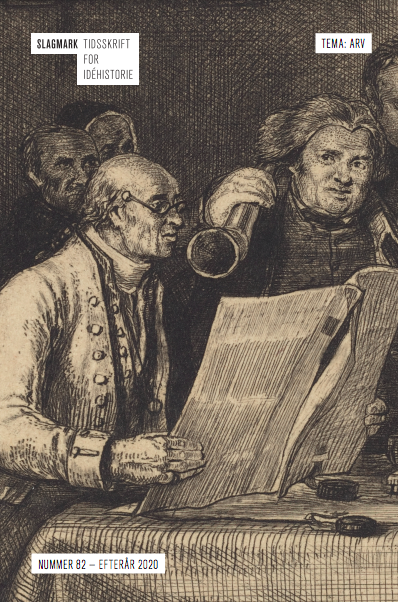“Mindeaaret som ingen anden dansk Forsker fik”: Arven efter H.C. Ørsted og elektromagnetismen i 1920
DOI:
https://doi.org/10.7146/slagmark.vi82.141051Nøgleord:
Olympic Internationalism, Commemorations, Ørsted, nationalismResumé
This article shows how the legacy of Hans Christian Ørsted (1777-1851), and his discovery of electromagnetism in 1820, was reconfigured and used by the H.C. english abstracts Ørsted Committee from 1914 before and during the centenary of 1920. Combining Somsen’s (2008) concept of olympic internationalism with uses of the past, I suggest understanding the 1920-centenary as an instance of olympic commemoration [olympisk historiebrug]. I argue that central actors from the committee, e.g. Martin Knudsen (1871-1949) and Kirstine Meyer, née Bjerrum (1861-1941), used Ørsted's nationality to substantiate Denmark’s cultural and scientific achievements. By comparison to pre-twentieth century biographies, I show how the committee re-described Ørsted, i.e. from a scientist [Naturforsker] to being a Danish scientist [dansk Naturforsker]. The committee was deeply concerned with proving the big contributions by the small nation of Denmark, and I show how this relates to cultural politics of the early twentieth century Denmark.
Downloads
Publiceret
Citation/Eksport
Nummer
Sektion
Licens
Ophavsretten til artiklerne i Slagmark deles mellem forfatter og Forlaget Slagmark.
Artikler og tekstmateriale publiceret i Slagmark må citeres, downloades og videresendes for ikke-kommerciel brug, under forudsætning af normal akademisk reference til forfatter(e) samt tidsskrift, årgang, nummer og sider.
Brug og distribution af tekstmateriale både i form af papirkopier og elektroniske kopier, til undervisningsbrug på uddannelsesinstitutioner og intern brug er tilladt efter aftale med Copydan Tekst & Node. Brugen skal ske inden for aftalens rammer.
Artikler og tekster må kun genudgives med eksplicit tilladelse fra forfatter(e) og tidsskriftet med en anerkendelse af værkets første publicering i nærværende tidsskrift.





